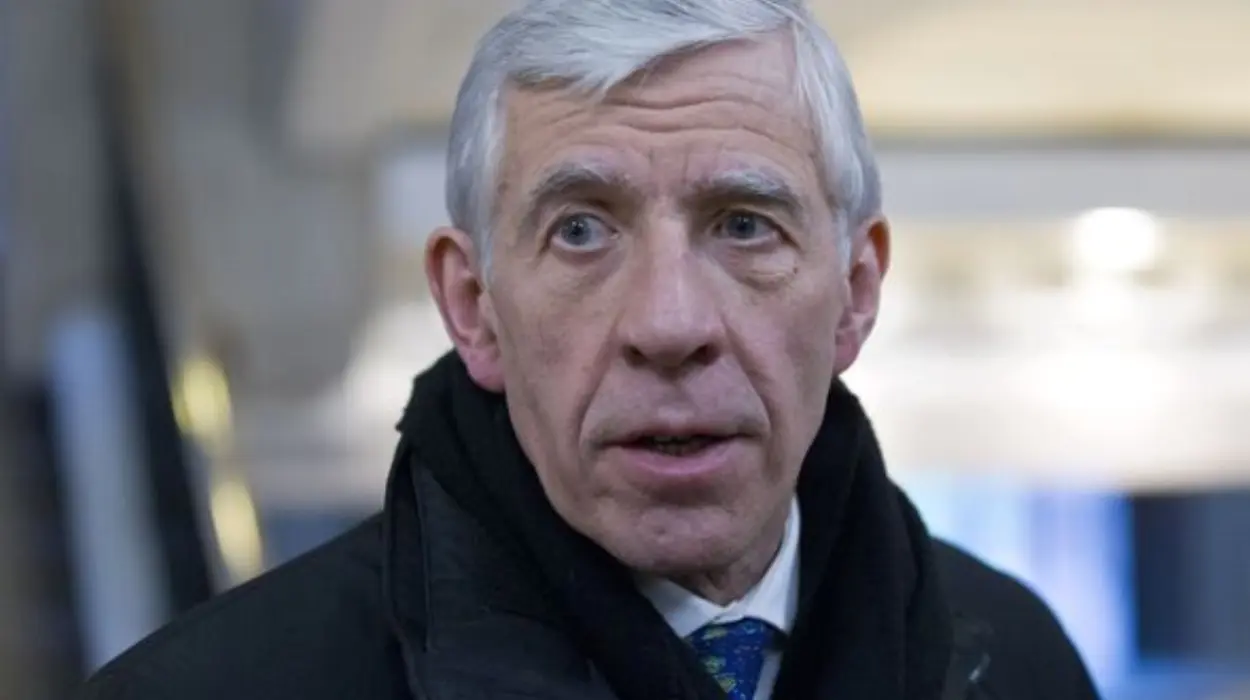UK (Parliament Politics Magazine) – Former home secretary Jack Straw says the UK should decouple from the ECHR to stop misuse of the Human Rights Act in migrant deportations.
As reported by The Telegraph, an ex-Labour minister urges PM Sir Keir Starmer to decouple UK law from ECHR to speed up migrant deportations.
Jack Straw’s views on UK courts misusing the Human Rights Act
Jack Straw, drafter of the 1998 Human Rights Act, said UK courts misuse it to block deportations of illegal migrants and criminals.
The Human Rights Act asks UK courts to “take account” of ECHR rulings, but Mr Straw says they misinterpret it against its original intent.
He said,
“There is no doubt at all that the convention – and crucially its interpretation – is now being used in ways which were never, ever intended when the instrument was drafted in the late 40s and early 50s.”
Mr Straw argued that the “use or misuse” of the convention was
“never anticipated when we were discussing in great detail how we incorporated human rights into British law in the mid-90s.”
Mr Straw slammed courts for treating “take account” of ECHR rulings as “follow,” which he says was never intended.
The former home secretary proposed amending the Human Rights Act to free UK courts from considering ECHR rulings, saying it’s quicker than a full withdrawal.
He said the migration crisis facing Mr Starmer is worse than New Labour’s, recalling the Sangatte camp on France’s northern coast in the 1990s.
Mr Straw added,
“The situation is more serious than the one I faced in the late 90s and early 00s. We had a high level of popular support, there was no Reform party, and the Tories were flat on their back.”
What did David Blunkett say about suspending the ECHR to deport asylum seekers?
Last week, David Blunkett, ex-home secretary under Tony Blair, urged Mr Starmer to suspend the ECHR to deport thousands of rejected asylum seekers to hotels.
He urged ministers to take a “radical approach” to tackle the crisis, amid backlash growing over 200 hotels housing 32,000 asylum seekers.
Downing Street’s stance on suspending the ECHR
Labour leader Keir Starmer assures that under his leadership, the UK will never leave the ECHR, pledging to uphold international law with “profound respect.”
Downing Street rejects any plans to suspend the ECHR. Keir’s official spokesman stated that the ECHR
“underpins key international agreements on trade, security, migration and the Good Friday Agreement.”
They added,
“Anyone who is proposing to renegotiate the Good Friday Agreement is not serious.”
The spokesman endorses Housing Minister Matthew Pennycook’s remarks that leaving the ECHR would align the UK with Russia and Belarus.
Home Secretary Yvette Cooper aims to limit courts’ use of ECHR articles 3 and 8, allowing deportation of failed asylum seekers and foreign criminals.
What did Reform UK and Tory leaders say about leaving the ECHR?
Earlier this week, while unveiling a mass deportation plan, Reform UK leader Nigel Farage confirmed his party will quit the ECHR.
Conservative leader Kemi Badenoch may also pledge to leave the ECHR at the autumn conference.
She added,
“It’s not just about throwing out numbers and throwing out targets. Something is wrong with the system. People who are throwing out numbers and saying they will leave the ECHR and so on are giving you easy answers.”
What did Adam Wagner say about British courts and ECHR rights?
Adam Wagner KC, a leading human rights barrister, stated,
“As much as there’s this focus on international law, as if international law is the thing that’s stopping people being sent, for example, to be tortured in other countries, I think they might find that the British courts, which I think they still quite like at the moment over international courts, have something important to say about people’s rights. A lot of the convention rights come from British common law rights.”
Key facts about the rights under the ECHR
The ECHR protects core rights, including the right to life, fair trial, freedom of expression, privacy, and prohibits torture. It is a dynamic law, with the European Court of Human Rights adapting protections to modern issues.
Individuals can bring complaints after exhausting all domestic remedies. States must provide justice and may need to change laws to prevent future violations.

